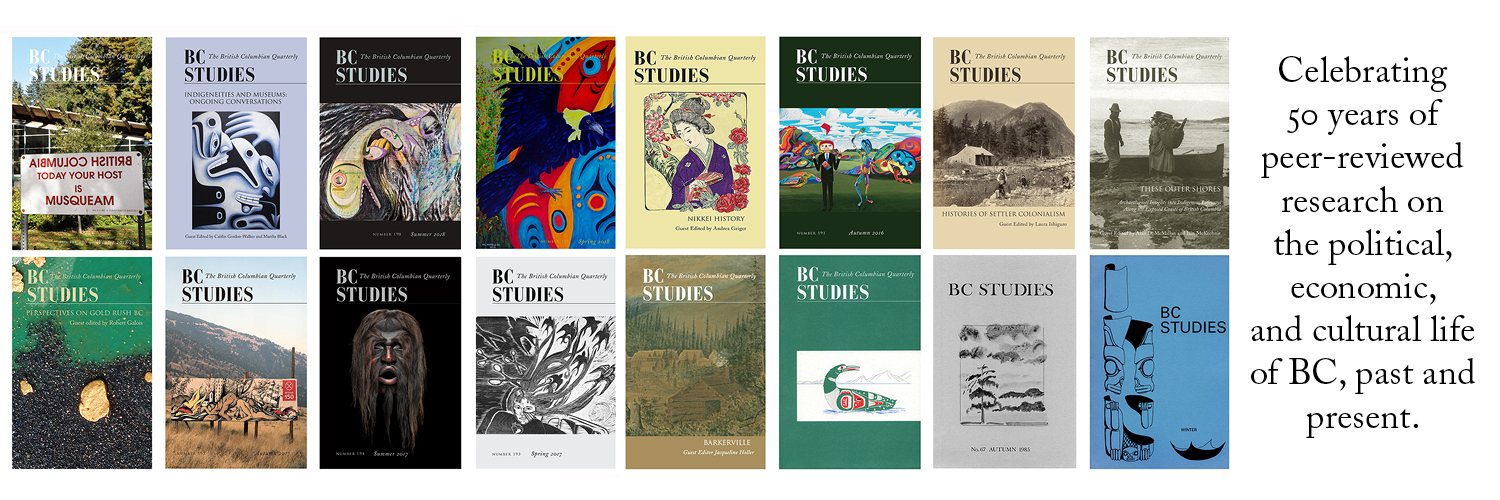Submissions
Submission Preparation Checklist
As part of the submission process, authors are required to check off their submission's compliance with all of the following items, and submissions may be returned to authors that do not adhere to these guidelines.- The submission has not been previously published, nor is it before another journal for consideration (or an explanation has been provided in Comments to the Editor).
- Please submit texts as Word Documents, images as high-resolution TIFF files, and audio as MP3 files. OJS can accept submissions up to 1GB; please contact info@bcstudies.com if your submission file is larger than that.
- Where available, URLs for the references have been provided.
- The text is double-spaced; uses a 12-point font; employs italics, rather than underlining (except with URL addresses); and all illustrations, figures, and tables are placed within the text at the appropriate points, rather than at the end.
- The text adheres to the stylistic and bibliographic requirements outlined in the Author Guidelines.
Scholarly Podcast
Scholarly Podcasts are a new peer-reviewed feature that extends our commitment to disseminating new knowledge forms from diverse voices and trans-disciplinary perspectives. Podcast submissions should contribute to the production of knowledge about any aspect of British Columbia, its landscapes, and its cultural, economic, social, and political life, past and present. They may present original research results or engage existing scholarship in new ways. The presentation of research or scholarship should be tailored to the genre and the medium. More information about scholarly podcasts is available here. Podcast submissions may be standalone episodes or short mini-series. Sound files should be cleanly edited and listenable, and may be submitted in any file format. There is no set length; we suggest between fifteen and ninety minutes as a guideline. Podcasts should be accompanied by a short text (1000-2000 words) that serves as an abstract, as well as by a full bibliography.
Privacy Statement
The names and email addresses entered in this journal site will be used exclusively for the stated purposes of this journal and will not be made available for any other purpose or to any other party.


